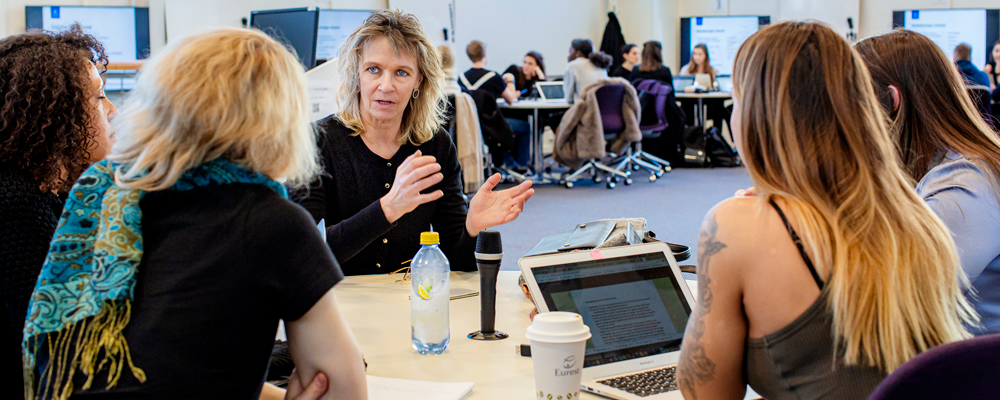
The faculty's excellence in teaching prize
The faculty annually awards a prize to reward and stimulate work with pedagogical development.
The Faculty's Excellence in Teaching prize
The Faculty of Social Sciences annually awards a prize to "persons who have contributed to a particularly successful effort for the quality of education and / or the pedagogical development".
We are now opening for the nomination for the Excellence in Teaching Prize 2026. The prize sum of SEK 100,000 is paid to the prize winner’s department or equivalent.
You can nominate individual teachers, teacher teams, an education or projects here.
Deadline for nominations is 31 March.
Questions? Contact utbildning@samfak.gu.se
Previous award winners
2025: Gisela Reskow and Kristian Wall

2024: Anders Sundell, Christel Backman and Sara Uhnoo

2023: Magnus Lundgren and Louise Holm

Magnus Lundgren: “The award has contributed to my further development as a teacher”
Magnus Lundgren is a political scientist who teaches international politics and conflict management, among other subjects. Those who nominated him for the award highlighted his ability to inspire enthusiasm and engagement in the subject.
Louise Holm: “Experiments concretize and reinforce economic theories”
Louise Holm teaches economics at the School of Public Administration. It's a subject that's about us, you and me, and everyone else out there, about who does what and how we interact with each other, she emphasizes.
2022: Sofia Björk, Patrik Vulkan, Caroline Hasselgren, Erica Nordlander and Jesper Prytz (not in the photo).

2018: Louise Skoog, David Karlsson and Kerstin Bartholdsson (not in the photo)

2017: Andréas Litsegård, Maria Stern, Johan Karlsson Schaffer and Linnéa Gelot, (not in the photo)

2016: Lenka Rovna, Jonathan Polk and Jan Rovny

2015: Tone Försund, Stina Larsson and Anneline Sander
Rules for the Excellence in Teaching Prize
